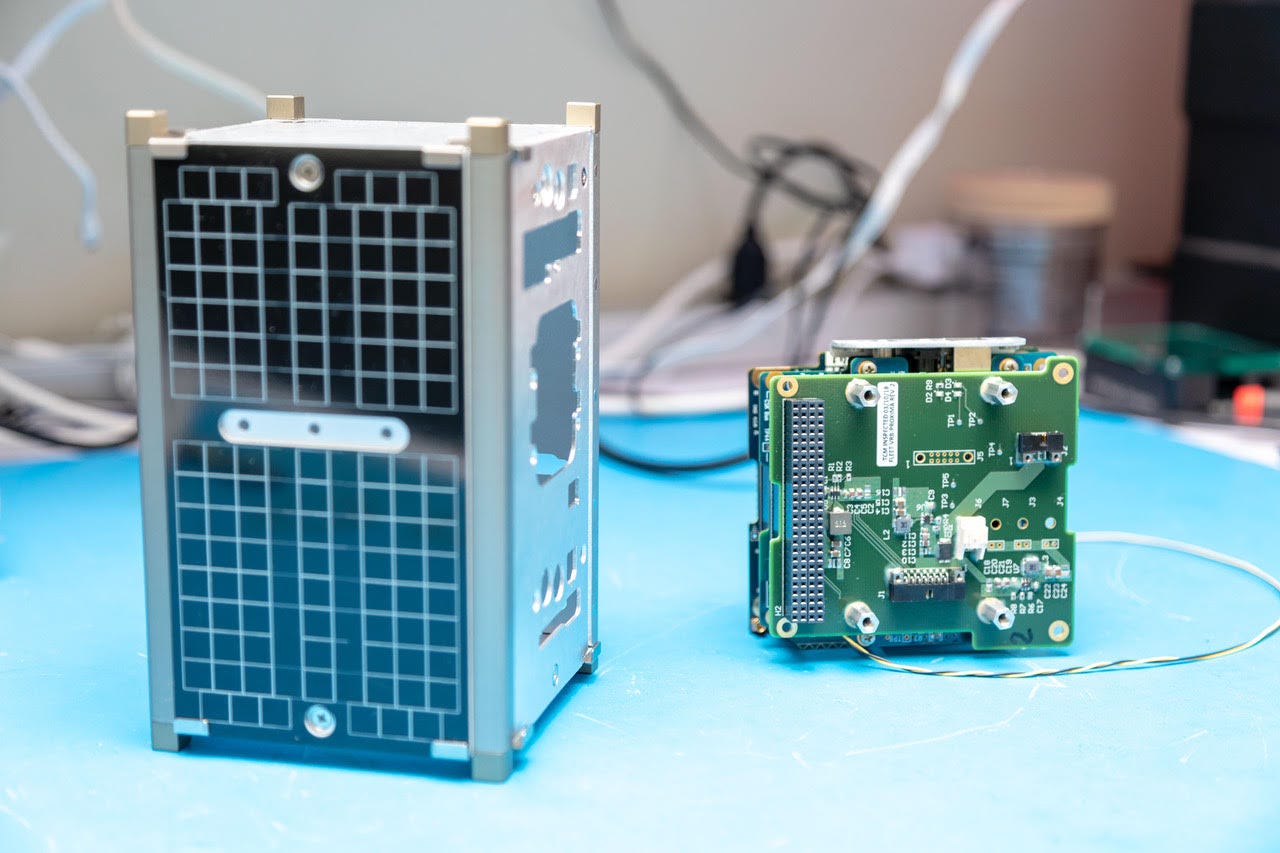Rocket Lab and Fleet Space to launch CubeSat next month


Proxima I and II satellites
Internet of Things (IoT) startup Fleet Space Technologies has announced it will be launching two satellites next month, hoping to provide internet connectivity for millions of sensor devices based in remote locations throughout the world.
The Australian startup will be sending its Proxima satellites into space as part of New Zealand-based Rocket Lab's It's Business Time launch, rescheduled for November.
Must read: It's Business Time: Rocket Lab prepares for launch out of New Zealand
The satellites have been added to the manifest for the upcoming mission out of Rocket Lab's Launch Complex-1 on New Zealand's Mahia Peninsula.
Fleet said its satellites will be launched inside Rocket Lab's Maxwell dispenser. They join the current It's Business Time payloads of two Spire Global Lemur-2 satellites, the Irvine CubeSat STEM Program (ICSP) IRVINE01 educational CubeSat, NABEO, a drag sail technology demonstrator designed and built by High Performance Space Structure Systems GmBH, and a GeoOptics Inc. satellite, built by Tyvak Nano-Satellite Systems.
The Proxima I and II satellites are a pair of identical 1.5U CubeSats designed and built by Fleet, with the company saying the satellites will mark the first commercial tests of Fleet's software-defined radios, enabling it to transmit data efficiently across both S-band and L-band frequencies in space.
Fleet hopes the satellites will help form the beginning of a constellation of more than 100 nanosatellites it expects will act as a dedicated "IoT space network for enterprises across the world".
"We decided to build and launch two more satellites over the past few months and Rocket Lab has moved at the speed of light to incorporate them in this mission, assist us with licensing, and complete integration in record time," Fleet Space Technologies founder and chief executive Flavia Tata Nardini said.
"We will be in space less than few months after making the decision to join the mission. This rapid turnaround time is what the space industry really needs now."
The Australian Communications and Media Authority (ACMA) has licensed Fleet to perform satellite telemetry, tracking, and command, and payload data reception across S-band and L-band frequencies. The launches of Proxima I and II also allows Fleet to test longwave and shortwave band frequencies, the company added.
The pathfinding payloads on Proxima I and II are scheduled to launch in advance of Fleet's larger Centauri satellites, which are set to be launched aboard other launch vehicles in late 2018.
"When combined with Fleet's ground terminal, the Portal, Fleet's constellation will enable satellite connectivity in remote industries where cellular networks are not present," Fleet said in a statement, noting also its Portal allows for the connection of up to 1,000 to private, secure Low Power Wide Area Networks anywhere around the world, at a fraction of the cost of traditional satellite systems.
"Unlike other IoT gateways, the Portal goes beyond simple data collection and uses embedded edge computing-based software to analyse and select key, targeted data for secure transmission over an array of satellite service options, including Fleet's own satellites."
SEE ALSO
Australia needs a space agency before startups are lured away: Fleet
Nanosatellite startup Fleet is calling on the Australian government to establish a dedicated space agency to support locally based rocket and satellite technology innovators.
CSIRO directs space agency away from humans and towards commercialisation
The country's peak research agency is nudging the newly stood up space agency in the direction of space technology R&D, rather than sending a man to the moon.
Budget 2018: Government confirms AU$41m space agency
Australia will create its own national space agency using AU$41 million in funding over the next four years, with the project part of its new Technology and Science Growth Plan.
Australian states and territories to battle for space agency boasting rights
A six-month turf war over the Australian Space Agency has begun between the country's state and territory governments.
Rocket Lab could be the next SpaceX and it's ready for its first big launch (CNET)
The startup's rockets aren't as huge as the SpaceX Falcon 9, but that doesn't mean they aren't a big deal.